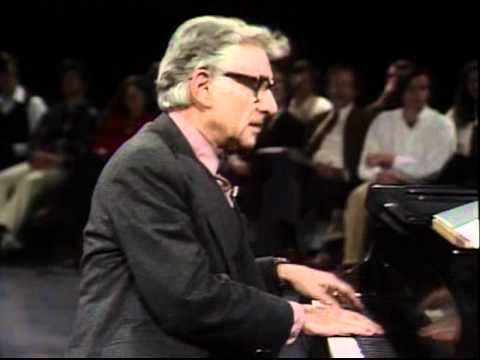It’s hard to think of a more iconic work of western (and New York) civilization than Sophocles’ Oedipus Rex. Among other impacts, it spawned Freudian psychology, which for a time reigned nearly hegemonic on the isle of Manhattan, and no doubt provided the conceptual underpinnings for the careers of more than a few veteran NYFOS-attenders.
Sophocles is still the hot ticket. Last year’s Noche Flamenca dance production of Oedipus’s companion piece Antigona, featuring the marvelous Soledad Barrio, wowed the critics and sold out an extended run. Naturally, Bernstein had to have a go at this material.
My own introduction to this Stravinsky opus came through my friends in the Harvard Glee Club, which was recruited as the chorus performing with the Boston Symphony Orchestra and conducted by Bernstein. My Glee Club pals reported the contagiousness of his enthusiasm and the depth of his vision of the piece, but also that his wild gesticulations sometimes made it hard to follow the beat.
Glee Club member Jay Culver recalls: “The experience was remarkable. Initially most members of the Glee Club hated the piece as it was horrendously difficult with wild rhythms and difficult tonalities but by the end it was what everyone wanted to sing. I remember a wonderful time during rehearsal when Lenny was discussing the various historical influences on the piece he described an oozing dance rhythm that clearly derived from Bizet’s Carmen while biting his baton in his mouth like a rose. It was a true lifetime experience as were all of the Bernstein experiences that the HGC had in the early 70’s — European Tour ’73 singing Chichester Psalms for the Pope in Rome.”
The recorded performance was used as the capstone for Bernstein’s 1973 Norton lecture series at Harvard. The video clip here includes Bernstein’s discussion of the themes of sincerity, pity, and power in Stravinsky’s music and its connection to the Verdi tradition. The lecture as a whole addresses sympathetically Stravinsky’s rear-guard battle to save that tradition from the onslaught of atonality. I’ve included part of Stravinsky’s section entitled “The Poetry of the Earth,” which was also the title of Bernstein’s final Norton lecture.
Bernstein discusses the relationship between Stravinsky’s Oedipus Rex and Verdi’s music
Excerpt of a performance of Stravinsky’s Oedipus Rex,
conducted by Bernstein
(If these excerpts do not play easily in your browser, you can also view the video here. The segment of the lecture referred to above plays from 1:46:06 to 1:57:14, and the performance excerpt lasts from 2:19:48 to 2:22:46)



0 Comments